RPG Dad
For those people wondering about how this page came to be, I can think of few more natural combinations than roleplaying and fatherhood. Well, honestly I think roleplaying goes well with every flavor of life, but especially with parenting. My wife drove this point home to me in October, showing me a thin stick with a clear blue line on it as I was rushing to get out the door for the Southern Interactive Entertainment and Game Expo. With my head completely caught up in contemplation of game design (and what I had forgotten to pack), my wife suddenly juxtaposed this with thoughts of 18 years of WTF. The result was similar to what would have happened had she juxtaposed my head with a 2×4.
Having visions of a baby interspersed with intense discussions of game development makes for interesting mental combinations. What sort of interface design is most effective for I/o during fetal development? What do you feed a child to ensure maximum HP replenishment? Is childhood a skill-based system or a leveling system? How do parents help ensure the child forms a successful life adventuring party if you are not supposed to take children into a tavern?
This page focuses on how RPGs inform parenthood and are informed by childhood. I look forward to a long and fulfilling campaign.
Introduction to RPGDad, or All I Need to Know about Fatherhood I Learned from Some Little Tan Books
I have been an employee, boss, student, professor, mentor, mentee and more, but I think little has prepared me for the details of fatherhood as much as has my role as a gamer (maybe that just shows how woefully unprepared for fatherhood I really am). After all, as gamers we constantly contemplate not only the current state of our character, but what got it there and where it is headed next. We learn to make plans and to change them quickly as situations (and GM whims) shift. Gaming encourages us to closely examine the minutiae of life and assess our own role in it.
One of the principles you will find in many games is that early game progression should happen quickly, with characters improving rapidly for the first hour or so of play. This is especially true in MMOs, where the tutorial quests are often designed to get a player through the first 10 levels of development in that hour. The next 10 levels may take several days. The 10 after that may take a week or more, and so on.
Most tabletop roleplaying games do the same. In most Dungeons and Dragons games, characters often reach second level after the first full play session, while it may take dozens to reach the higher levels. Most skill-based systems, like Fading Suns, make it much cheaper to gain basic competency than to become experts.
Many other games take a similar approach, giving the player the basic skills needed quickly (jump, build, attack, etc.) and then requiring much more time to learn the various nuances of those skills. Game designers often illustrate this with a game progression curve, wherein player skills should increase in tandem with the difficulty of the game. In most cases, this curve has its most dramatic growth at the beginning of the game, slowing down over time.
One of the fascinating things about the parenting books I have been reading (“What the Heck were You Expecting?”, “The Baby Owner’s Manual”, “Mr. Spock’s Vulcan Baby Care”, “Drinking Scotch from a Nipple”, etc.), is that their descriptions of childhood development bear a lot of similarity to that curve. I don’t mean that our skills grow in tandem with life’s difficulties (if only!), but that our early development is much more rapid than it is later in life. We go from n0 mobility to walking in less than a year. We go from no more communication than screams to talking in a similar period of time. Our size changes dramatically in our first year, and at a much higher rate than it ever does again (barring Pym Particles).
In many ways, infancy and early childhood has the same primary purposes as RPGs – character growth and development. In the next post, I plan to focus on whether childhood is a level-based or skill-based system. Until then, how do you think your gaming has impacted your real-world character development?
Fifth-Level Toddler
Since we all know life exactly parallels games, how do infants advance? Do they gather experience and then make great leaps forward, as with a brooding drow yearning to be free in the Forgotten Realms, or do they advance bit by bit over time, like a vorox munching on al-Malik in the jungles of Ungavorox?
One of the complaints about D&D is that characters can adventure like mad, traveling the world, without learning a blessed thing. Then they kill one more kobold and immediately level up, gaining all sorts of powers and abilities. Contradictorily, that is also one of the fun things about D&D – the anticipation of that moment. Skill-based RPGs feel more real but lack that golden moment of leveling up.
Skill-based RPGs have always appealed to me, with their incremental growth mimicking the way we slowly develop in day-to-day life. However, we also have structured lives, like leveling systems. This is especially true when we are young. Graduate from sixth to seventh grade, and you are thought to have accumulated the abilities and traits that go with such a dramatic progression, as have most of your peers.
The more I contemplate childhood (and the impending birth of our playtester daughter), the more it seems that an amalgamation of the two systems is the best way to replicate the mix of minor changes and dramatic initiations that make up this period of our lives. Day after day we improve, growing slightly faster, stronger and more coordinated. Yet major transitions also happen seemingly overnight, with us suddenly able to sit up, crawl, stand, walk and talk (kind of like the aftermath of one of our Atlanta Bourbon and Whiskey Society meetings).
On the other hand, literacy grows, starting with a few letters, then small words, and suddenly the full ABCs. Counting proceeds similarly, starting with the fingers of one hand, then two, then onto 20 and beyond. Math concepts start as vague notions and then blossom into understanding as we translate 1+1 into #+# (that is, number plus number, not hash tag and hash tag, but feel free to tweet this anyway).
I have been trying to classify childhood development into these categories, with most going into the skill-based system but some (especially the more consequential transitions) going into a leveling system. Remember how Second Edition D&D gave titles for each character level? Instead of being a third-level Swordmaster, an infant levels from Speech Level One (Howler) to Level Two (Vocalizer) to level three (Soundmeister) to Level four (Wordcrafter).
However, instead of happening when the baby kills enough goblins (which should occur before we leave the hospital), it happens when the baby achieves certain developmental milestones (makes distinct sounds, repeats sounds, says “mama”, and so on). For instance, by the time they are six months old (Vocalizer), most babies are making distinct sounds using a variety of consonants. Part of the reason for this is that babies memory works differently from even a small child’s, being more procedural than semantic. For a baby, the world is like a poorly procedurally generated dungeon, where what appears in one room has little relationship in the baby’s mind to what happens in the next (kind of like every room in Module B1: In Search of the Unknown). This helps explain some of the sudden developmental leaps babies seem to make.
The next update will include a more in-depth look at the initiation form of the level system, or Leveling Up Baby.
FPS Baby
So I know I said my next RPGDad installment would be about level-based childhood, but RPGBaby came early and I had to change my plans. Who woulda’ thought a child would require something like that? I wrote the below while we were in the hospital, and I hope it does not offend too terribly much 🙂
In case you never noticed it before, childbirth is much like a good first-person shooter designed solely for female players. Some people may tell you it is co-op, but just like in most co-op games, you will be doing all the real work. As a man, I have perfect insight into this matter and am happy to share these truths.
You can start the game with tutorial levels, named after those famous level designers Braxton and Hicks. These are usually very easy and unlikely to damage your character, though they may provide some scares. However, as with most tutorials, they really do not prepare you for the real thing.
The first true levels bring small waves of opponents (contractions) and allow you plenty of time to recover and power back up between them. As you become more skilled in dealing with these waves, they build in intensity, duration and rapidity, just as good game progression should. Thus, when you think you have mastered the game, then the designer ratchets up the difficulty.
There is a water level where the dam breaks and your character can get washed away in a flood. There is even a fire level (the crowning). This is the stage where the game designer is sending wave after wave of punishing attacks against you. The difference between early contractions and the ones where you push are like the difference between imps and cyberdemons in Doom. By end game you are sure you have nowhere near the resources you need to battle the big boss, but you do it anyway and win the game.
If you are playing in hardcore mode, you avoid picking up the health packs (painkillers) along the way. Okay, I’ll admit it – every woman in childbirth is playing hardcore mode, since they refuse to pause or even save the game 🙂
PS. There is even an extra mini level after the big boss battle where you can deliver a placenta, but like most mini levels it is somewhat anticlimactic.
Leveling Up Baby
Anyone who played Dungeons and Dragons for more than a couple sessions remembers the great feeling when her character suddenly went up a level (http://www.giantitp.com/comics/oots0012.html). More powerful spells, more survivable characters, more annoying familiars … these appeared all at once, essentially overnight (much like how a baby goes from making little poops to suddenly making massive, diaper-exploding ones).
While making such leaps in development seems unrealistic, it primarily comes out of the miniatures game tradition that spawned D&D. I always thought it very much fits the game’s motif. Medieval and Renaissance life focused on initiation and definite moments of progress, far more than does modern life. Fighters went from page to squire to knight. Clerics went from altar boy to priest to bishop to archbishop to pope to the highest level, antipope. The Freemasons had 23+ levels of initiation, each with its own powers. Other occult orders were much the same.
The argument can be made that modern life is poorer for not having such levels of Initiation. As an aside, thank goodness SIEGE has them. Many of our members progress from attendee to volunteer to speaker to organizer. I’m not about to tell you the initiation rites involved, however.
That aside aside, we still celebrate some life milestones in this way. Turn 16, and society believes you now have what it takes to risk everyone’s life on the highways. Turn 18, and you are suddenly as dumb as every other voter.
The younger we are, the more of these milestones we seem to have. Our daughter Sage leveled up in “Turn Over” on her first day of life, going from “Lie There Like a Lump” to “How’d She Get on Her Side?” in her first hours. It’s hard to think of rolling over as a skill-based, but it is a significant milestone. Heck, Sage advanced to a third-level “What the @#$% are You Doing on Your Tummy!” by week three.
In Dungeons & Dragons or World of Warcraft, characters move up these levels by getting experience points. Most of these are obtained by killing monsters, and Sage has obviously been doing plenty of that. Okay, characters also gain experience by fulfilling certain goals, and that is a more likely route for Sage than is slaughtering goblins.
I was surprised that breastfeeding is more of a leveling system than it is skill based. Sage went from Fumbler to Sucker to Nipple Torturer in the span of a few days. Damage dealt definitely increased with each level. FYI, for mothers, breastfeeding is definitely a skill-based system strongly influenced by how many points they put in “Milk Production” and “Extreme Pain Tolerance.” It may be even more aptly defined as a level and characteristic drain attack from the Abyss.
Doctors have already established one level progression system for newborns, and that is the Apgar score. While this is actually more of a characteristic rating used to assess color, breathing, heart rate, muscle tone and activity, if it starts low, the baby wants to raise it very quickly. Sage began life with a 1, got it to a 5 within minutes, and reached the level cap of 10 within an hour. She did this via experience – experiencing both life and vigorous rubbing by the nursing staff.
I am hoping that Scream Volume is a level system and that Sage has reached the level cap. I fear that there may be no maximum level.
So, which childhood skills and abilities do you think are best categorized as level-based ones?
Mad Baby Skillz
While level-based systems do well explaining some aspects of childhood where we can make great progress all of a sudden, like turning over and breast feeding, most of our skills advance slowly and methodically, like Donald Trump’s hair piece taking over his brain.
In adults, these skill progressions happen slowly. For instance, most adults have thousands of hours experience driving cars, but many have failed to develop any skills beyond causing other drivers to wet themselves while texting and driving. We have spent thousands of hours online, yet people still fail their gullibility rolls when it comes to Nigerian princes, Microsoft giving hundreds of dollars to people who like its Facebook page, or king.com games being fun.
In babies, however, we can see these advances happening before our eyes. For instance, tummy time is an important skill development system for newborns, where they learn to use their muscles, raise their heads, and even crawl. Sage had quickly leveled in the critically important Baby Turn Over class, but it is hard to see that advance. Day one she turned on her side. A couple days later she turned on her belly. It’s not like she spent hours in between rocking from side to side, slowly increasing her degree of rotation while humming “Turn, Turn, Turn.”
On the other hand, watching her advance in Lift Head, I got to see her make minute progressions. One moment in Tummy Time her head was flat on the quilt, eyes darting around. The next she raised her chin and dropped it again. Bit by bit she raised it more and more, eyes becoming more fixed and determined. Finally she could hold it up for several seconds before it fell back to the quilt.
For the next several days, we got to see the Lift Head skill in action. At first, she clearly had a 25-percent chance, as she would succeed about once in every four attempts. Then it increased to a 33-percent chance, and now her character sheet shows her having a 42-percent Lift Head skill, and every successful use of the skill clearly gives her an opportunity to increase her chance of success.
The crucially important Giant Smile skill is another example of continuing skill development. Sage got her first few crucial skill rolls in Giant Smile courtesy of the Intestinal Gas trait, but it was not too long before she was trying to form them even without the benefit of internal tumult.
My wife and I debated whether the new smiles were in response to positive stimuli or just her trying out facial muscles, until last week when I was holding her, and my wife snuck up and kissed her on the cheek. Sage’s head swiveled immediately, and when she saw her mommy, a smile exploded across her face.
Yes, a natural 20, critical smile hit to the heart!
I remember experiencing this skill progression (and some smiles) early with roleplaying games. I was in elementary school when Runequest came out, which explicitly made this connection. The easiest way to increase a skill was to succeed at it, though characters could also train up. For Fading Suns, we added the idea that failure could also lead to success. We recommended that gamemasters encourage players to spend their experience advancing skills they have attempted, whether they succeeded or not. This encouraged players to justify their characters learning from failure as well as success – a critical part of being human. After all, if we had to wait to succeed at something to get better at it, many of us would never make any progress.
Bug Hunting Baby
When I cry, there can be any of a myriad number of reasons – pain, sadness, lag, death of a character, rolling too many fumbles, existential angst, lack of coffee, existential lack of coffee, etc. – but our daughter is much more of a stoic than am I. When she cries, there is one of a small number of reasons from which to choose, and hunting for such a reason involves a simple series of steps, much as if one was bug hunting a game.
Good game playtesters often follow the scientific method when bug hunting. They propose a hypothesis – a game wall should stop my avatar. They test the hypothesis – walking the avatar into a wall. They analyze results – my avatar went through the wall, fell through the earth, and crashed the game. Then they repeat.
Testing our baby’s cries are much the same, usually without falling through the Earth or crashing. When a cry suddenly erupts, breaking through the peace of whatever FPS level I am destroying, I go to step one – get my wife to deal with it.
JUST KIDDING HONEY! Don’t erase my saved games.
After eliminating pain or discomfort as a reason for her cries (meaning her pain and discomfort. Mine apparently has no cure):
Step 1. Check the diaper. If wet, refer to my RPGDad post on Tasking with Baby. If not wet, go to 2.
Step 2. Feed. Option 1 is to get my wife to deal with it, as she is better equipped for that than an I (and better equipped than most female avatars in games). If my wife is not available, or threatens to erase my saved games, I prep a bottle, take a shot from it, and then give the baby her bottle.
Step 3. Gas. Okay, the jokes were too easy for this one. Let’s just say I pat baby’s back to the rhythm of any Bob Marley song I can get on my iPad until she expels the gas, and then I praise her for volume and duration.
Step 4. Tired. If she still cries, then it’s time to rock and soothe in hopes of getting her eyes to close and her brain to start sleep processing.
Step 5. If she keeps crying, it probably means her nappy is wet again, and I get to start the entire process once more.
In all seriousness, I have found (thanks to Dr. Harvey Karp) a fool-proof method to soothe her when these don’t work, but it must be done in exactly the following order.
- Swaddle the baby tightly;
- Cradle baby on her side, facing my chest (making sure baby can easily breathe)
- Rock baby gently;
- Make a constant “shhhh” noise; and
- Provide a pacifier.
It may take a few minutes, but it invariably calms her if one of the other issues is not the cause of her distress.
Of course, with the upcoming, and much dreaded Blue Screen of Teething, all this goes out the window (pun intended) …
And no jokes allowed that the main reason she cries is the realization of who her father is.
Weird Things in the Middle of the Night
Guest blogger: Momma Mel
RPDDad wanted to title this, “Weird Scenes inside the Poopmine,” but RPGMom always has the winning vote
So all parents of pre-verbal infants use cues to determine what’s going on with their little one. Facial expressions, body movement, cries, and diaper performance are some of the main ways tiny humans communicate. Yes, you read that right, diaper performance. Apparently there are experts who have categorized baby pooh based upon infant health, and the folks over at Babycenter put it all up on their website as a handy-dandy guide for new parents. (NOT FOR THE FAINT OF HEART)
In the first month new parents are overly concerned, and observant, and tend to have more discussions regarding the rear-end performance of their little monster than they would rather admit. (Yes, monster is correct. Anything that can create that much stinky mass and those bizarre noises can not be human.)
As the months roll along, parents become more and more accustomed to the new norm, don’t scrutinize so much, and frankly are too tired to be hyper-vigilant pooh trackers any more (RPGDad says “Hyper-vigilant pooh trackers” is his next band name). This is especially true for the middle-of-the-night diaper change. As our doula put it, the 4 am change is all about business. Get it off and back on as quick as possible with little-to-no light in an effort to assist the baby in, one prays, sleeping through the whole thing.
So here you are half-asleep in your pajamas, blind as a bat without your contacts, going about diaper business, just like every other night. Pick up baby, soothe baby, get baby to changing table, flick on night light, undo PJs, undo diaper cover, remove diaper… It seems like every other night, but wait, that blurry mess doesn’t look right, what is that?? So yes, you lean in a little closer until the diaper gets into good-vision range. Your sleepy mind is racing – it’s saying “Humm, that looks green or is it grey, well at least it’s small. What did Babycenter say about colored pooh? Is she sick?” And as your vision clears up, you find ballerina shoes. Yep, a tiny pair of grey ballerina shoes.
Now that you are wide awake it is easy to see that some poor sleep-deprived parent during the previous diaper change had grabbed the pink striped, ballerina shoe decorated, sleep sack and stuffed it into the diaper cover. In sleep-deprived parent’s defense, it is the exact same size as a trifolded cloth diaper, and it was lying on the changing table the day before. We actually can’t remember who did the earlier zombie diaper change, but either way, we’ll wash this one, rather than sending it to Monkey Butt, and we’ll be happy our little monster has a happy, healthy digestive track. But next time, well, try to keep the diapers and PJs separate. Until then, we’ll be darn proud our little one is so talented that she poohs ballerina slippers. 😉
-100 to Hit Solid Foods
One of the fascinating things about watching RPGBaby learn is realizing just how much we take for granted about even the most basic skills. Take eating (but don’t you dare take my food). I’ve written before how even breast feeding is not wholly instinctive in humans but must be developed. I realized spoon feeding would be much the same, but did not understand how elaborate the steps could be.
It began with RPGBaby copying our eating habits at mealtime. Let’s hope she copies RPGMom’s table manners more than she does RPGDad’s, and takes at least 10 years to realize Cheetos are a food group. We gave RPGBaby a little wooden spoon and she had a wonderful time poking herself in the eye with it.
When she recently graduated to eating foods other than milk (yummy baby purée!), we used that spoon to feed her avocado, spinach, avocado-spinach (really), regurgitated broccoli and so on. Well, with us expertly maneuvering that utensil, the food:
- Started on the spoon,
- Went to her chin,
- Went back to the spoon,
- Went to her cheek,
- Went to our fingers,
- Went into her mouth,
- Went back out and onto the bib,
- Back onto our fingers, and
- Finally into her mouth and down her gullet.
When we reduced that process to only seven steps, we began letting her feed herself. This is where the true intricacy of the process revealed itself. RPGBaby had already learned how to handle a spoon, and the goal thereof. Thus we merely added food to the spoon. She took a firm grip of the handle. Skillfully and confidently she guided the spoon … right into her chin.
Much to her credit, she immediately realized her mistake, righted herself and drove the spoon right back into her chin. On the third try, she finally got it past her chin … and onto her cheek. With a little guidance, however, she soon had the incoming delivery down pat … but not the food offloading.
We are used to maneuvering a spoon along a single plane. Scoop up food, raise to mouth, dump into piehole. Baby, on the other hand, made the more logical motion of, “take spoon, bend elbow, shove spoon in mouth, gum it ineffectually, and remove from mouth with food intact.”
Rather than try to make her adopt our admittedly convoluted food delivery methodology, we handed the spoon to her backward, and let her treat it like a lollipop. This worked much more effectively, since boiling soup is not on her menu until at least her seventh month (and first visit from child welfare).
Even after she started with such a low chance to hit, it was wonderful to see her go from no chance of success to a multicolored mess.
If you want to see one of her first (dubious) experiences with adult foods, you can go https://www.youtube.com/watch?v=rONzVel7PuM
Multiclass Baby
As a game designer, I have always preferred skill systems, where characters slowly progress in certain abilities, rather than a leveling system, where all of a sudden they gain a number of new powers. In watching RPGBaby develop, however, I have become more of a believer in the leveling process.
Her ability to stand up was a perfect example of this. One day in her seventh month I put her to sleep in a co-sleeper next to my desk and proceeded to pretend to get some work done. Suddenly I looked over, and, not only had she pulled herself into a sitting position, but she had grabbed the co-sleeper’s bars and pulled herself all the way to her feet. She stood there staring at me, rocking back and forth, contemplating a quick swan dive over the short bars to the barely carpeted floor below. Needless to say, co-sleeper time is now heavily monitored
RPGBaby is now in her eighth month, and we have seen a number of firsts in this period. After revving her motor all through month seven, she suddenly made forward crawl momentum without immediately collapsing. One day she was unable to move forward. The next day she could go several feet. The day after that she was across the room and heading for the good Scotch. It is as if she just killed the number of kobolds she needed to get her first level in Crawl. I could hear the ding in the background (or that might’ve been me popping a blood vessel as I chased after her).
She also became a Level One Speaker in month 8, using “Kit Cat” (or “KiCa”) to refer to our cat and to nothing else. I think she will reach Level Two when other sounds also apply to only one thing. I do not mind that “Da Da” seems to apply to everything. She will point at me and say, “da da,” and then point to the bathroom and say, “dada.” I like to think that is art commentary, not a reflection of how long RPGDad stays in there.
It bothers me a little when she points to her Superman doll and says, “dada,” but that is only because Lois … I mean, RPGMom … refers to RPGBaby too often as her “Supergirl.”
Unfortunately, in month 8 she also gained Level One Separation Anxiety. I am glad to say that people who know me well believe it is not long before she gains Level One Embarrassed by Father, which will counterbalance some of that.
FYI, RPGBaby helped write this article. I was working on an iPad with a Bluetooth keyboard, and she quickly figured out that the keyboard had an impact on the screen. She began hitting the keys, but only watching the screen. Apparently Level One iPadding allows you to type, “tmoihmgnij.” Then again, so does Level One Internet Troll …
Applause for Sharing and Socks
In my last RPGDad post, I talked about how RPGBaby had suddenly leveled up in several areas (crawling, talking, separation anxiety – the good stuff). Most of her skill increases, however, follow a longer, slower more elaborate progression, and it is pretty delightful to watch.
Let’s use getting dressed as an example. Early on, like by month two or three, RPGBaby had figured out how to put her arms through the sleeves of her shirts. She even seems to take pleasure in doing so, though it may just be a reaction to her father’s relief at not having to wrestle her into another ridiculously cute onesie. Putting on socks, however, has not come as easily. (Link to video).
In her eighth month, I was very surprised to see her clearly trying to figure out how to put socks on. She pulled one off, studied it (by putting in her mouth), and then tried to out it back on her foot. When that didn’t work, she studied the sock again, studied the foot that still had a sock on it, and again tried to put the sock on her unclad foot. She would even closely compare the sock in her hand to the one on her foot. She did this several times, very clearly (and not just because I think she has an 18 Intelligence) trying to figure out how this sock thing worked, before finally being distracted by the cat.
Sharing is another one of those skills that RPGBaby is developing a bit at a time. She likes to be spoonfed her tasty peas, kale and amaranth concoction, but she also likes to play with the spoon. Give her the chance, and she is feeding herself, spoon flipping green stuff all over the walls, conducting invisible bands with it, and much more.
One fun activity for her is to pretend feed me with her spoon. After feeding her, I will hand the (mostly) empty spoon to her, and she will then try to feed me with it. Not infrequently, we will get into a game of handing it back and forth between us, with me thanking her when I get it it and she bouncing up and down with joy when she gets it. We have also taught older kids at the library this game, passing drooled-on blocks back and forth while the parents mindlessly chant “Thank you” and “You’re welcome,”
Now RPGBaby can add clapping to her repertoire of skills. This is one of those skills we forget has to be taught. Two weeks ago we went to an event at the library where the host encouraged the children to applaud. RPGBaby looked at the other children banging their hands together, but made no attempt to emulate them. Then, last week while we were playing, she sat up and started to silently clap. Realizing that this was more than a snarky response to RPGDad’s failure with a bubble blower, I showed her how to slam one’s hands together to make noise. She tried, but it stayed silent applause.
Following her next sleep cycle, however, she was able to get a golf clap’s worth of volume out of her applause. Now she she can applaud like a pro, especially when RPGDad drops something or stubs his toe.
I wonder which skills she will surprise us with next?
Her First Four-Letter Word
There is lots written about the growth of language skills, but nothing beats seeing it in action. RPGBaby clearly understood words before she could say them, with her name getting quick recognition. “No” has yet to sink in, however. Speaking has come early, primarily in the form of nouns. While lots of sounds (and other things) come from that tiny mouth, I only count them as words if they are clearly applied to their correct subject, don’t get misapplied, and she uses them consistently. She is now up to four. Of course, “mama” and “dada” are not among them.
The first, at eight months, was “cat.” Yes, we have one dark cat, who has been a surprisingly good big brother for RPGBaby. She loves our cat, often signaling this affection by pulling his whiskers, yanking on his tail, or pounding on his flanks repeatedly in her manic version of petting. Our cat, who was a terror among other cats, sits patiently through it all, eventually moving off if it becomes too burdensome. Nary a swat, hiss or negative review on Twitter. Just a few dirty looks. RPGBaby took to pointing at him and calling him, “cat.”
Next was, not surprisingly, “dog.” RPGBaby often takes walks (well, gets pushed in a stroller) with a neighbor who has a very friendly white Bichon. RPGBaby learned to call him, “dog.” Then I took RPGBaby to a friend’s house where there is a dark dog even smaller than our cat. RPGBaby immediately took to calling him “cat,” and now any small four-legged animal is a “cat”.
Other words have also popped up. “Dat,” (that) accompanied by a pointing finger, is a general interrogatory we interpret as, “Pray tell, what is the official nomenclature of that at which I am currently pointing?” It is her most commonly used word.
“Cheese” appeared once, as did “Thank you.” She often says, “I la la” to her stuffed animals before giving them big kisses (or gnawing on them), so it might mean, “I love you,” or it may mean, “Your brains are mine.” Either way, these examples do not fit my above requirements.
The latest one that does, however, is her first four-letter word: “duck.” Despite early encounters with live ducks, she only uses it for rubber ducks or photos of them. This came as a complete surprise. I had no idea we had used the word often enough for her to associate it with anything, much less use it correctly.
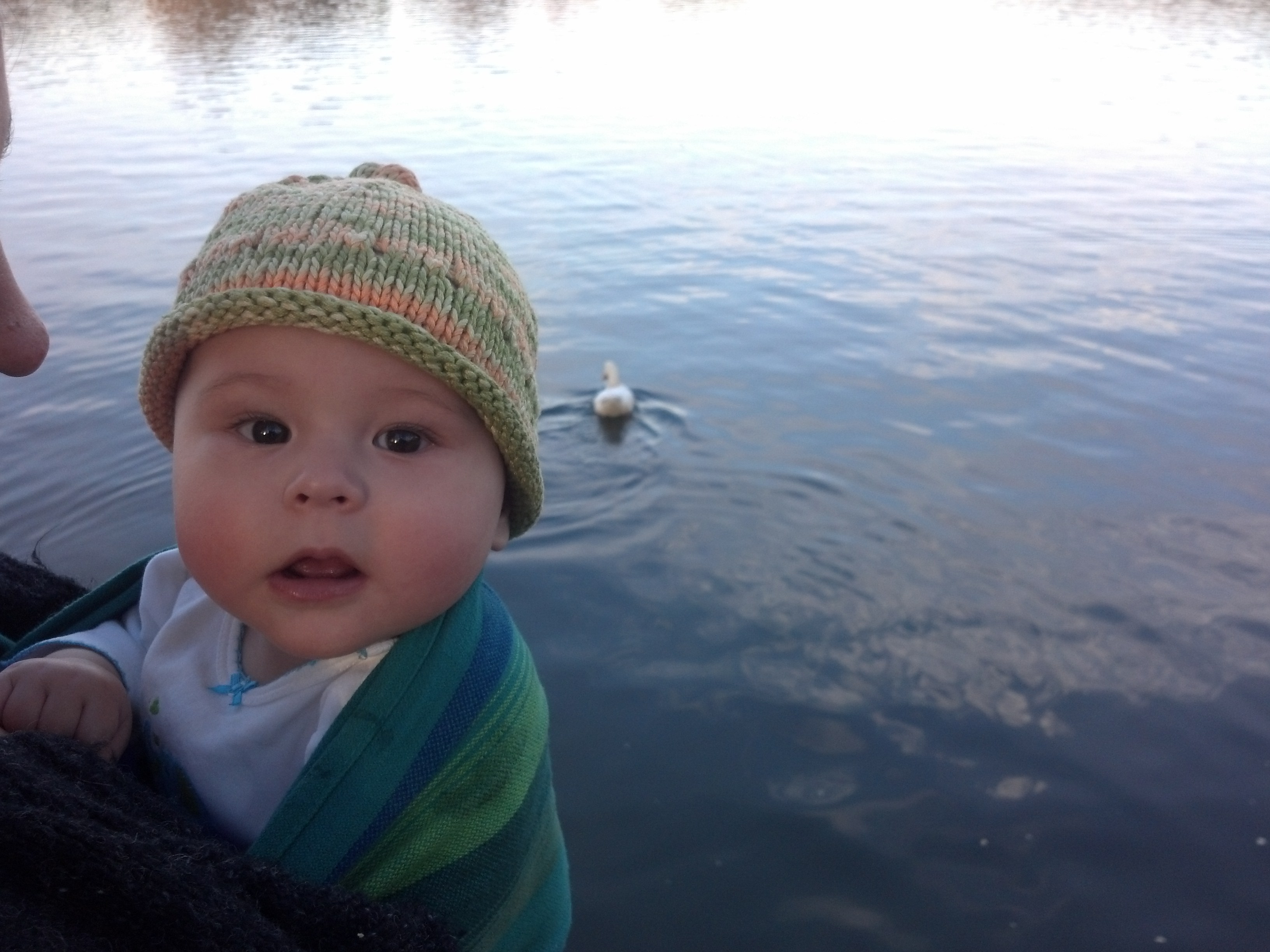
Any bets what her second four-letter word will be?
Mentoring Systems and Social Learning
A number of online RPGs have implemented mentoring systems, primarily as a way to get experienced players to beg their nonplaying friends to spend money in game with them. These systems generally require a more experienced character to temporarily act weaker in order to run the same quests the less experienced one can survive. The mentor will generally get some experience, but not much.
In many ways, such systems are horribly unrealistic. We benefit from watching our friends utilize all their experiences, and learning from how they handle situations. However, with infants, it actually has surprising similarities. When I teach RPGBaby something, I do not expect her to handle it as well as I do (unless it is singing – she is already far better than am I). Much of a baby’s learning is social, via a process called, unsurprisingly, social learning.
Social learning relies upon observation and imitation for the transference of skills and knowledge. However, the teacher can knowingly emphasize certain actions to help drive home the lesson. A classic example of this is with chimps, who can take years to develop the skill of banging sticks against nuts on rocks to break them open (the nuts, not the rocks). They generally learn the basics by watching their elders, and then experiment on their own for years until they get it right. However, their parents sometimes speed the process by leaving appropriate sticks nearby or even going through the motions in an exaggerated manner.
RPGBaby’s learning often happens in a similar manner, though a flailing foot in her first month of life taught me that she was already an expert nutcracker. Showing her how to feed herself followed a similar process. When we first gave her something other than milk, we initially did it with a spoon. She immediately wanted to feed herself, and the ensuing Pollack painting of scattered food was a wonder to behold.
However, when I picked up food off the high-chair tray and placed it in her mouth with my fingers, she got the concept quickly, especially since I fed myself that way before feeding her (not all them time – just to demonstrate to her). Picking up food between pointer finger and thumb became her preferred way of feeding herself, as well as great training in Dexterity.
Putting on shoes and socks is another great example. I was amazed one day when I saw her remove one of her socks and try to put it back on her feet. She got the concept if not the process, and it could only have been from watching us do it, as we had not tried to teach her.
Now I try to do it slowly and carefully so she can follow how it is done, and she is still trying. I wonder if there are good dolls out there that teach the dressing process.
Another Look at Leveling Up
This is borrowed from friends who have a three-year-old son.
“The formation of the human mind is amazing. Two months ago, (our son) couldn’t do one of the four puzzles he put together in ten minutes today. He couldn’t make a functional loop with his train pieces and he couldn’t tell a coherent knock knock joke. It’s like some key turned in his brain and now he gets patterns in a way he never understood them before.
Also, his counting is spot on and he’s gotten much better at comprehending quantity as related to numbers. It all makes me wanna go back and be a cognitive development scientist.
And for those who are wondering, the coherant knock knock joke was: “Knock knock! Who’s there? Poop! Poop who? Poop poopy bum bum!” This joke was delivered while on the toilet.”
Since he is still two months away from his fourth birthday, I wonder if we should call this level 46 …
A Mini Ding
A number of MMOs provide minor advances between the main level increments, referred to as “mini dings.” It is fascinating to see mini dings in real life, as RPGBaby makes sudden advances in unexpected ways.
She has a number of shape puzzles, where she has to figure out which blocks go in what spaces and how to manipulate them to fit. This has been a struggle for her, with us having to help her as recently as two days ago.
Then, yesterday, I put one on the floor for her and walked away for a couple minutes. When I returned, all the pieces (except one) were in their proper places. She asked for another puzzle, and I pointed to the last piece. She immediately put it in place. I put away the first puzzle, gave her the second one, and spread out the pieces. This one was more difficult, with a number of oddly cut pieces, and she set to work on it.
For the first time, she had no trouble figuring out where all the pieces went. She had more trouble manipulating them, but, also for the first time, put all the pieces in place by herself. I could almost hear the mini ding chime.
She Leveled Again
Right at her 18-month birthday we gave up on tracking all the new words she was adding to her vocabulary (which meant they were used correctly, were reproducible, and only used incorrectly in the most adorable ways). Before that she had been evidencing 2-5 new words a day. Now it is 5-10, and I just gave up on writing them all down.
However, one new word warms my heart. She got up on my lap while I was in front of my computer. She immediately began pressing keys, moving the mouse, and repeating the word, “Work!” Now she says that whenever she wants me to open the door into my office 🙂
Oh, and yesterday she walked all the way up our stairs by herself for the first time, holding onto the railing the whole way. Talk about leveling 😉 #proudrpgdad
Working on Her A-B-Ls
One of RPGBaby’s favorite words is “work,” and she actually gets upset with her if we don’t let her work when she asks. She currently has a variety of Word docs she is turning into masterpieces of 19-month old toddlerese. She especially impressed me today by not only turning on her computer herself but also repeatedly using the mouse to highlight the file on which she wanted to “work.”
I had wondered if “working” on a traditional QWERTY keyboard would confuse her learning the alphabet, but she is putting those fears to rest. Yesterday she made it from A-L in the Alphabet Song without any help, and can now complete the whole alphabet if I sing it at the same time as she. Of course, that does not mean she recognizes the letters yet – just the ability to sing a song.
Launch Post
We have been getting a lot of requests regarding what people can give us for the impending launch of our new project … or, as Meldrena calls it, the upcoming birth of our first child 🙂
The best things our friends can give us are gifts of their time and talents. Gifts of art, music and games you have made are definitely appreciated. We are especially thankful for people willing to teach our child music, arts, crafts, programming, aikido and all the other important skills a young girl should have. For people who want a more immediate role, we do have a registry setup (though Meldrena requests that the color pink be avoided to prevent drowning in that color):
www.myregistry.com/public/meldrenaandrewbaby
We may also be asking for Monkeybutt, but we will not know for sure until April 18, when we have Yes, we are asking for Monkeybutt, following our free, in-home Monkeybutt demonstration.
FYI, the baby is currently in beta and expected to go gold June 5. She actually launched early, so be ready for some new posts as soon as I am done dealing with the surprising amount of downloadable content 🙂




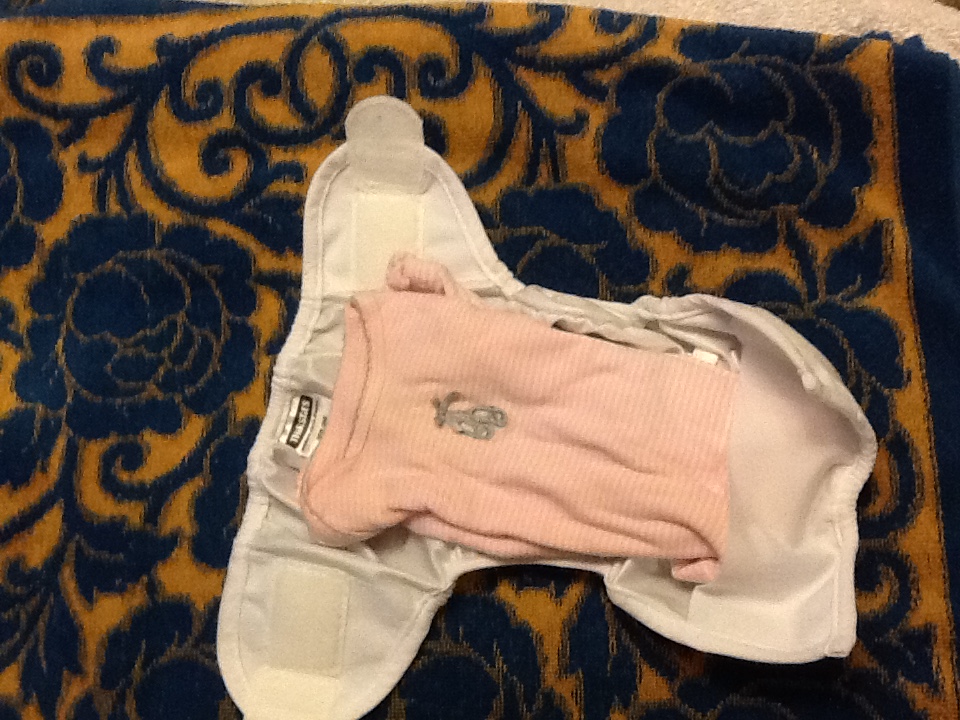
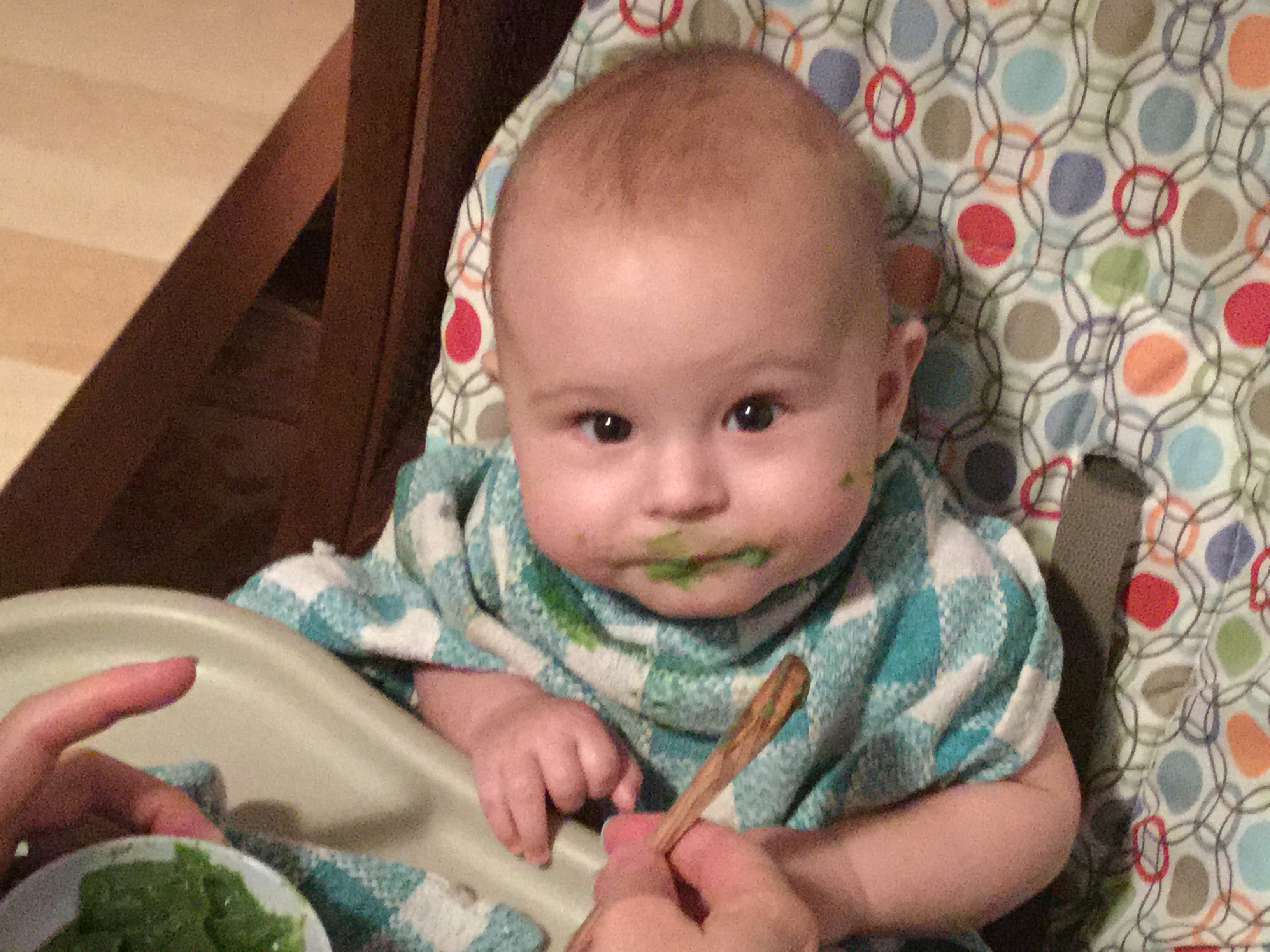
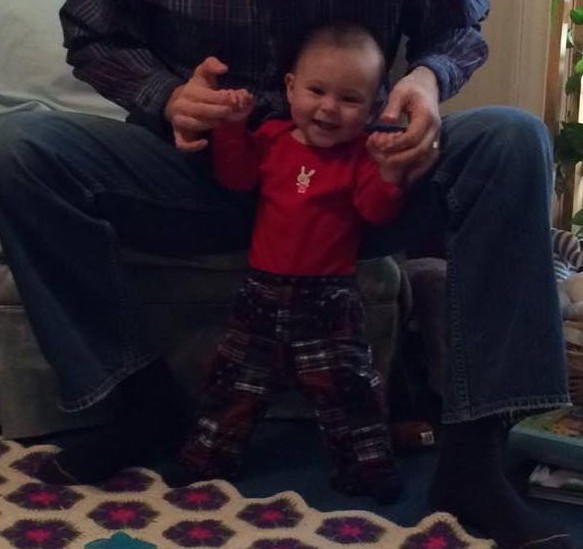
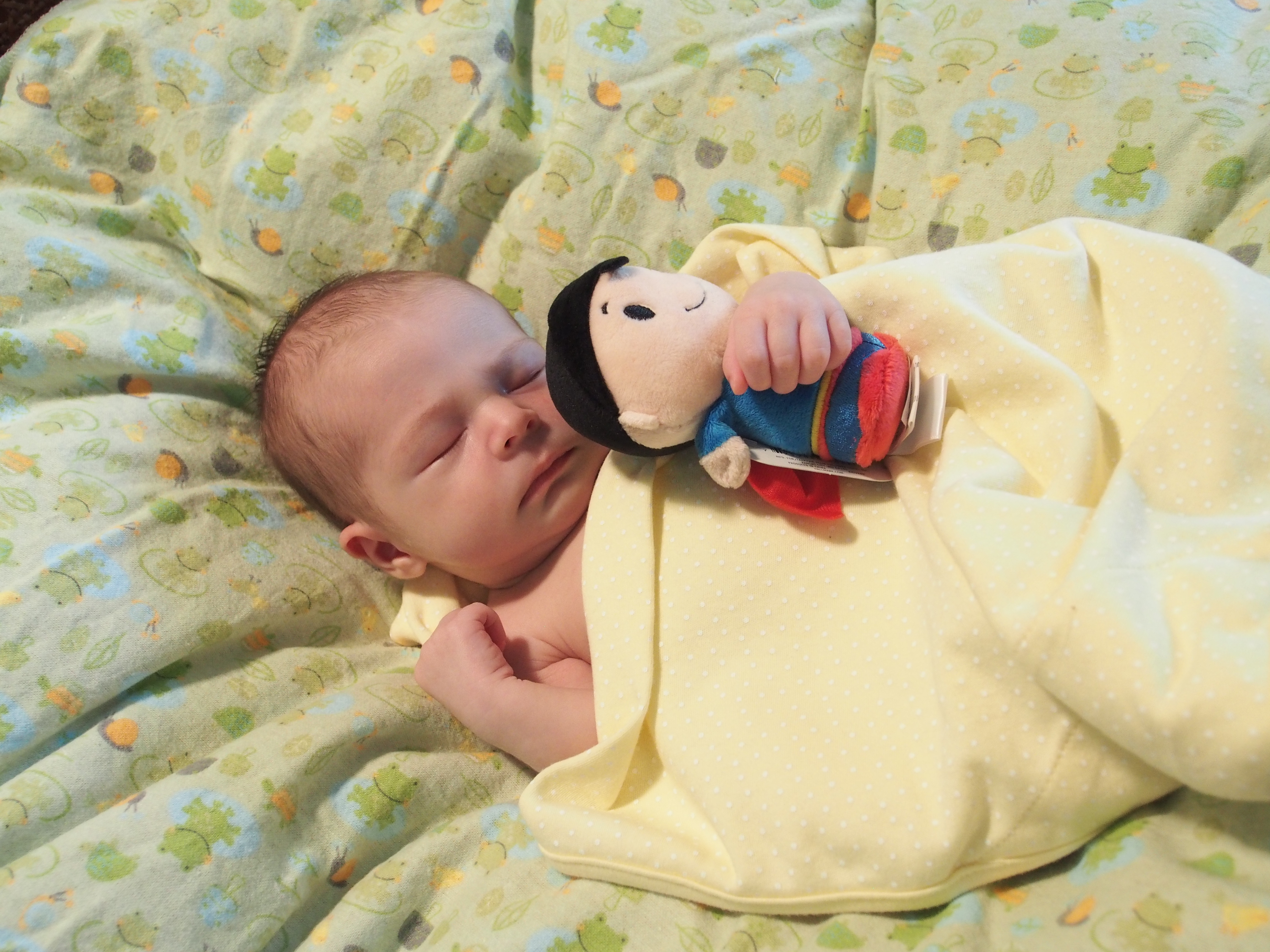

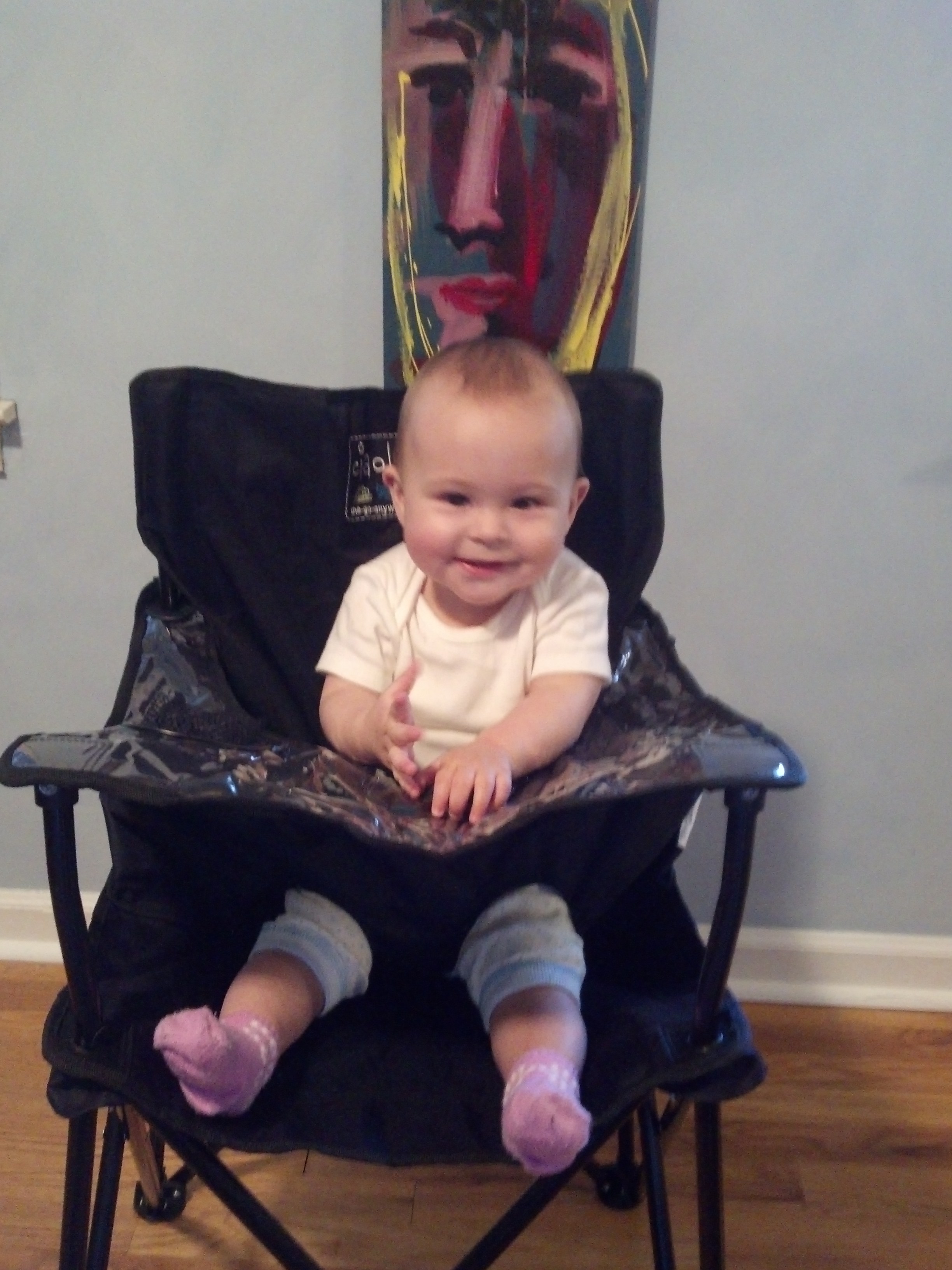
This is maybe the cutest thing I have ever seen. Congrats again to you and Mel!
🙂
Ha! Andrew you crack me up. While Mel might still be young, your becoming a father relatively late(r) in life has its advantages. Your daughter will come to see and appreciate this.
I wish that I could relate to the RPG references but sadly I cannot. I’m not even a gamer (does Freecell count?). I’ve always preferred the realism of a genuine Learjet cockpit to a Microsoft version.
And because I’m an impatient cousin despite my chronic procrastinate tendencies, I can’t wait 12 years for Mel’s permission to allow me to give your kid flying lessons. So for now I’m going to check out the baby gift registry….. 😉
Congratulations!
Mike
I need you to teach us how she can balance on my palm!
Congrats Andrew… great read and kudos on your respect for fatherhood